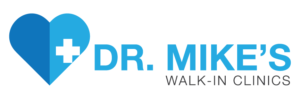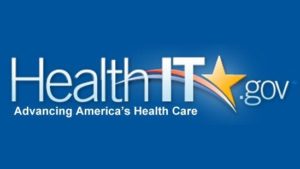
MX January Newsletter
A monthly roundup of news and updates from MX
January 2022 Edition
TEFCA v1 Launches
The U.S. Department of Health and Human Services’ Office of the National Coordinator for Health Information Technology (ONC) announced the publication of the Trusted Exchange Framework the Common Agreement (TEFCA) Version 1. This fulfills a major requirement under the 21st Century Cures Act, bipartisan legislation passed in 2016 that sought to increase choice and access for patients and providers.
TEFCA aims to designate a “network of networks” that will connect the patchwork of existing health information networks to create nationwide connectivity for health information sharing. The two main components of TEFCA are:
- The Trusted Exchange Framework is a set of non-binding principles to facilitate data-sharing among health information networks.
- The Common Agreement is a contract that uses the Trusted Exchange Framework to establish “rules of the road” for different health information networks and their users—such as hospitals, ambulatory practices, clinics, health plans, government, and public health agencies—to securely share clinical information with each other.
Participation in TEFCA is currently voluntary and networks that decide to participate must commit to sharing health information for the following subset of HIPAA permitted purposes: Treatment and Individual Access Services. ONC has indicated this initial limited scope is intended to help networks onboard to TEFCA in an incremental fashion.
MX is reviewing the TEFCA guidance and reference materials. Like other health information organizations, we are evaluating the potential benefits and tradeoffs of participating in TEFCA.
The Sequoia Project will hold a series of informational webinars on TEFCA over the next few weeks. Please be on the lookout for updates in our monthly newsletters.
Participant Bright Spot

Dr. Mike’s Walk-In Clinics has served the Hi-Desert area for more than 20 years with locations in Apple Valley, Victorville, Barstow, and Hesperia. The medical practice group is passionate about making healthcare easy and accessible to the community and provides urgent and primary care services for more than 120 patients daily.
Dr. Mike’s mission of providing easily accessible care was difficult to achieve due to the challenge of obtaining timely and complete medical records and patient histories. They were often forced to turn patients away who needed follow-up care due to the lack of medical information. The staff spent time chasing updates from specialists, calling hospitals for discharge information, and getting signed authorization forms for the hospitals to release patient medical records, which was a burden on both the staff and patients.
To get critical patient records with medical histories quickly, Dr. Mike’s joined the MX network in March 2021. Visit our website to learn how Dr. Mike’s Walk-In Clinics use Manifest MedEx’s longitudinal patient records to improve workflows and care.
News and Events
________________________________________________________________________________________________________________________________________
Today, we are at an inflection point with a 16% increase of Americans enrolled in Medicaid from before the pandemic. California aims to improve the quality of life and health outcomes by offering vulnerable, high-risk populations with enhanced care management through its CalAIM program, the nation’s largest Medicaid Program. Other states are also working towards implementing transformation initiatives. There is a clear need to build health data infrastructure that will enable and drive success. But how can California and other states do this successfully?
Claudia Williams has outlined principles that health policy leaders can follow to make bold and achievable progress with their Medicaid initiatives. Read her full article in HealthAffairs to gain insight to how our Medicaid systems can build the health data infrastructure needed to reach ambitious improvement goals.
Network Growth

New data sources available on MX today:
ADTs from the following 2 participants
C&S A Medical Corp (2 locations)
ORUs from the following 18 participants
Adventist Health System/West (18 locations)
CCDAs from the following 4 participants
C&S A Medical Corp (2 locations)
Pioneers Memorial Healthcare District
Sierra View Medical Center
Lab data from the following 38 participants
C&S A Medical Corp (2 locations)
Pioneers Memorial Healthcare District
Sierra View Medical Center
Have questions or want to learn more? We're here to help. Reach out.
We want to hear from you! Let us know how we're doing.
